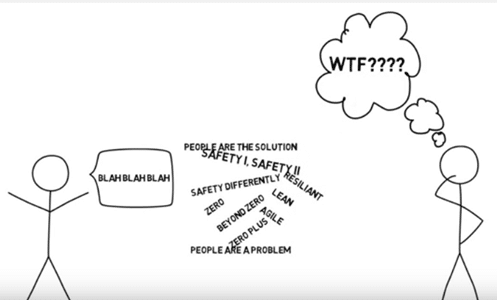Incommensurability and Discourse in Risk

I was invited this week to run workshops at Monash University for graduating and post graduate students in Mining Engineering. I was allowed 6 hours to introduce the Social Psychology of Risk, what a challenge. This was a challenge not because the students were not intelligent but because none of the students had the language or linguistic structure to understand what I was going to discuss. So where does one start? How does one translate many years of experience and research in Social Psychology and risk to people who don’t have a similar linguistic structure? Even the word ‘congruence’ in Maths and Science means something entirely different in psychology! Kuhn (2000, The Road Since Structure) demonstrates that even within the same discipline (Science) translation becomes impossible because paradigms and assumptions of identical words and names for concepts don’t match. Speaking across disciplines in many respects is a wicked problem without access to generalists who can translate.

This is why WHS should be transdisciplinary in education, so that it can speak across disciplines and not be locked in A discipline. So that it can understand critical concepts in humanistic disciplines and speak across disciplines rather than be locked in ‘cross purposes’ and mis-semiosis about risk.
So, how did things go with the engineering students. After 6 hours I think they learned two new words and began to realize that the Social Psychology of Risk was a whole new world.



Do you have any thoughts? Please share them below